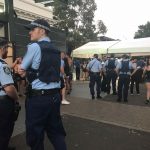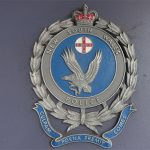It’s Important to Know Your Rights this Music Festival Season

The music festival season got off to a tragic start this year. Two young Australians died after taking drugs at the Defqon.1 festival in September, while another drug-related death occurred at a festival at Sydney Olympic Park a fortnight ago.
And despite pill testing having proven to save lives in European countries where it’s been utilised for decades, the NSW government refuses to contemplate harm reduction measures, preferring instead to rely on saturation policing and the use of its hopelessly flawed sniffer dog scheme.
The NSW Police Force has also doubled down on its use of strip searches over recent years. Officers have even been turning people away from festivals following a positive indication by a drug detection dog, even though no illicit substances are found.
In such an environment, it’s more important than ever to know your rights rather so you can act accordingly if an officer tries to act beyond their powers.
Search powers
The police power to stop and search a person without a warrant is contained in the Law Enforcement (Powers and Responsibilities) Act (LEPRA) 2002.
Section 21 of the LEPRA stipulates that an officer can stop, search and detain an individual without a warrant if they suspect on reasonable grounds that the person is carrying illegal drugs, a dangerous weapon, stolen property, or anything used, or intended to be used in a crime.
An officer must have a reasonable suspicion to search someone. The authority on what constitutes reasonable suspicion is the 2001 NSW Court of Criminal Appeal case R versus Rondo. It posits that “a reasonable suspicion involves less than a reasonable belief, but more than a possibility”.
So, an officer must have a “factual basis” to search you. And it’s a good idea to ask what that is. It cannot be that they think you look dodgy, or they don’t like the way that you’re dressed, or even if you’re in an area known for prevalent drug use or other crime.
Knowing what to say
You should never say you consent to a search, because if you give informed consent, you will not later be able to rely on the fact the search was illegal to have any resulting charges dropped or thrown out of court, or to take other action against the officers.
All that you’re actually required to say when you’re stopped for a search or subsequently arrested is to give your name and address. If you refuse this request, or provide false details, you may face a hefty fine.
If the police do find illicit substances on you, it’s best to remain silent. This will guarantee you don’t say anything that’s detrimental to your case in the long run. And definitely don’t say you were going to give the drugs to your friends, even for free, as this can lead to a more serious charge of drug supply, rather than possession.
What to expect during a search
If a police officer decides to search you despite you saying that you don’t consent, it’s best to cooperate. Complying with the request doesn’t mean that you have consented. If you try to resist, it can result in a charge of resisting arrest. And watch what you do say, as swearing can result in an offensive language charge.
There are three types of searches that police carry out. There’s a frisk search, which is when they run their hands down the outside of your clothes. An ordinary search is when you’re required to remove items of clothing for inspection, such as shoes or a coat. And they can also strip search you.
Section 21A of the LEPRA provides officers with the ancillary powers to require you to open your mouth and shake out your hair. And section 202 requires an officer conducting a search to provide their name, the reason for the search and to produce their badge if they’re not in uniform.
And if possible, you can have a friend film the search on their phone. It’s perfectly legal and officers have no power to prevent it, unless the individual filming is hindering the search in some way.
A hopelessly flawed tactic
The NSW police use of drug detection dogs is a controversial issue. Statistics show that when sniffer dogs make a positive indication the subsequent search results in no illegal drugs being found from anywhere between two-thirds to three-quarters of the time.
Section 148 of the LEPRA provides police with the power to use drug dogs in a public spaces without a warrant. Places where officers can use them include licenced venues, music festivals and around public transport.
The failure rate of drug dogs leads to questions as to whether a positive indication actually warrants a reasonable suspicion. It also means that regardless of whether you are carrying drugs police may search you and they can actually carry out a strip search on that basis.
Those invasive strip searches
Police use of strip searches after an initial search turned up nothing has close to doubled recently, from 590 in 2016 to 1,124 last year. And 64 percent of these strip searches resulted in no illicit drugs being found. So, these days, it’s a possibility you have to contend with.
Section 31 of the LEPRA allows police to order you to disrobe in any place if “the police officer suspects on reasonable grounds that the strip search is necessary for the purposes of the search and that the seriousness and urgency of the circumstances make the strip search necessary”.
A strip search must be carried out in a private place. So, at a music festival, it could be in a tent. It must be conducted by a member of the same sex. At no times are body cavities to be searched, and an officer cannot touch you in anyway.
Only those needed for the purposes of the search are allowed to be present. No item of clothing should be removed unnecessarily. And under no circumstances should a child under the age of 10 years old be searched.
If you are nabbed
If you’re found in possession of illegal drugs, all you have to do is provide your name and address. Remember that remaining silent is the best policy and don’t say that you were going to provide the drugs to anyone else.
It’s best to be aware that under section 29 of the Drug Misuse and Trafficking Act 1985, if a person is found with a quantity of drugs that’s deemed a “traffickable amount”, they can be charged with the more serious crime of supply, even if there’s no evidence to show that they were distributing them.
This is known as deemed supply. Just three or four MDMA pills – or 0.75 grams – can be deemed supply. For cocaine, methamphetamine and heroin it’s three grams or more. And for cannabis, it’s at least 300 grams.
And as of last month, there’s a new offence on the books known as supplying drugs that cause death. If an individual supplies another with a drug for financial or material gain, and it turns out to be lethal, they can be thrown in prison for up to 20 years.
Charges dropped or downgraded
In the case that you are arrested, it’s best to get in touch with an experienced criminal defence lawyer, as they can guide you through the process, and even have the charges dropped or thrown out of court. If you are charged with drug supply, they may be able to have this downgraded to the less-serious charge of drug possession.
So, now you’re in the know. Remember to comply with police instructions, but never give consent to a search. Have a good festival season and play safe.








